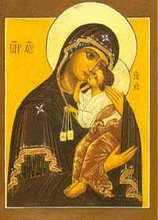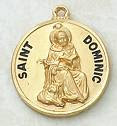To take a complete view of the European Church, we must begin to look at ancient Greece and Rome, the two major centers of European Christianity in the beginning of the Christian Era.
Up until the middle of the First Century B.C. spiritual and secular leadership was kept separate in the Roman Empire. Of course, there was a senate to lead the nation politically and a small group of priests called pontiffs who lead the nation in their spiritual life. At the head of the group of pontiffs was a supreme pontiff, called the Pontiffus Maximus. When Julius Ceasar took the reins of the Roman state and turned it into an empire he also assumed the title of Pontiffus Maximus and was the officiator of sacrifices in the Temple of Jupiter. After he died Ceasar Augustus became the Pontiffus Maximus, and the state religion never again separated from politics of the state. The story of the conversion of Constantine is well known and frequently looked at with skepticism, but I maintain it is true. Under the sign of the cross (and the blessings of the Lord), he defeated his rival in battle and became the sole emperor of Rome.
Constantine was also the Pontiffus Maximus. He was the head priest of all state religions, including Christianity. Up until this point the undisputed head of the Church was the bishop in Rome. Constantine legalized the practice of the Christian faith after converting to Christ, but he did not completely shake off all vestiges of Paganism. With over three hundred years of religious tradition telling Constantine he was the head of the Church, it was not an easy idea to get rid of and he refused to submit to the Roman Bishop. Constantine always considered himself the head of the Church, and equal to the Apostles.
During his reign, Constantine moved the capital of the Roman Empire to Byzantium, a small city on the banks of the Bosphorus, but he took this idea with him that he was the proper head of the Christian Church.
Sunday, October 7, 2007
Subscribe to:
Post Comments (Atom)





6 comments:
I believe one must be careful in trying to establish what was in Constantine's mind. Agreed, that Pontiffus Maximus provides a mindset of being in charge of the State religion but Constantine did not make Christianity a State religion but officially tolerated it. It was not made the official religion for over another half century until 380 by Theodosios. Thus, Constantine was never in a position to be Pontiffus Maximus of the Church.
Constantine did call a council, the First Ecumenical Council, to solve theological disputes but although he was interested in the proceedings he did not decide the issues but gave that to the Bishops. So, in this matter it is hard to see that he considered himself the head of the Church, as some of the later Christian Emperors were more inclined to do. The idea of submitting to the Bishop of Rome was not a universal requirement of Christian faith and, even if this was necessary, I haven't heard of any evidence that he directly refused to submit to the Roman Bishop.
Constantine established a new capital, New Rome, on the site of Byzantium rightly to better control the heart of the Roman Empire in the East. He did not so much move the capital as found a second capital equal to Rome with Rome maintaining its place as capital with the Western Emperor, when there were two Emperors. Constantinople did become the dominant capital of the Empire over time, especially after the fall of Old Rome to barbarians but this was a process since Constantine and not a sudden change necessarily intended by him.
Finally, Christian Emperors do have a mystical function in that they are rulers in the image of God. They are also leaders of the Christian people in the Empire and have a duty to protect the people in a holistic manner, so, although they are not priests as such, they have many shared functions and they are not divorced from a form of leadership and headship in the Church.
Monk Patrick,
Please accept my apology for delaying a response for so long. After initially reading your comment I did not respond because I wanted to give you a thoughtful response, in the mean time my internet connection has come and gone.
I admit I did make some strong accusations against Constantine and his refusal to subject himself to papal authority. I did come to that conclusion through conjecture, but my opinion was formed through study and thought. It is my understanding that Constantine did preside over the council he called and signed off on the conclusions it came to. This gives me the impression he felt he had either veto power over the conclusions or that his signature lended the council more legitimacy, neither of which I would consider to be true. One of the things I find qiute curious is the Roman bishop's absance from the council. It was undoubtably a vital See, so why didn't the pope make an apearance? It is a very suspicous situation right from the start. Then the pope received a final statement from the council and approved it, just as Constatine did?
The most convincing evidence that the pope was the head of the Church came from the bishop of Milan. He wrote, in the Third Century, that all Christian must conform themselves to the Roman Bishop. He was very clear that the bishop in Rome was the head of the entire Christian Church. Of course the argument could be made that he was refering to the westren empire only, but when I read it I understood it to mean the entire world.
I must acquiesce in my statement that Constantine never submitted to the Pope in Rome and usurped his authority over the Church. By virtue of being a resident of Rome, the bishop of Rome would have been Constantine's bishop. I whole heartedly agree that national figureheads are mystical leaders of the Church and they are responsible to God for the spiritual welfare of those under thier charge. This remains to be true even to this very day, whether the leaders themselves acknowlegde the true of the matter or not.
I look forward to hearing anything else you have to say and I will weigh your comments heavily.
Blessings to you Monk Patrick.
Although I would need to re-examine this point, I believe the Emperor signing the conclusion on the council is more to do with its legal status as an Imperial document than to whether it was binding on the Church. His signature ratified that it was approved by the Emperor for the whole Empire. This does not imply a veto as to the decisions nor added legitimacy, as far as its Christian standing is concerned. This was a seal of the witness of the Holy Spirit and the holy Bishops.
The Pope, as far as I can recall, did not attend any of the Ecumenical Councils in person but sent legates in his name. Only at the Fifth Ecumenical Council was the Pope present in Constantinople but refused to attend. (He later acknowledged the Council before his death.) So, overall, no meaning need to be attached to the absence of the Pope at the First Ecumenical Council and he was represented by his legates. The Pope's approval signifies to the universal witness of the Church to the findings of the Council that its declaration of Faith and Canons were in harmony with those accepted in Rome as well as in the other Sees, thus testifying to its universal truth but not establishing its truth, which is from God.
In the Third Century, Rome was the See of Primacy for the entire Church. It manifested the unity and oneness of the Church. To be out of line with Rome was a serious breach of Church unity. This does not mean the same as Roman supremacy and infallibility mean today. Rome still acted with the consensus of other Bishops and not unilaterally, although there are exceptions, and although it had always remained faithful until then, it was not necessarily guaranteed that it would remain so, or that it had an exclusive hold on the truth; it was one witness among many but, nevertheless, an important and very influential influence.
I hope this provides some alternate ways of interpreting the historical facts for you to help put things in a better light.
Yes, it was helpful. Thanks for your insights and pleasant conversation. I had to delete my last comment because of an embarassing spelling error (I make a lot of those, but this post was short enough that it would be easy to retype!).
The valuable information
Post a Comment